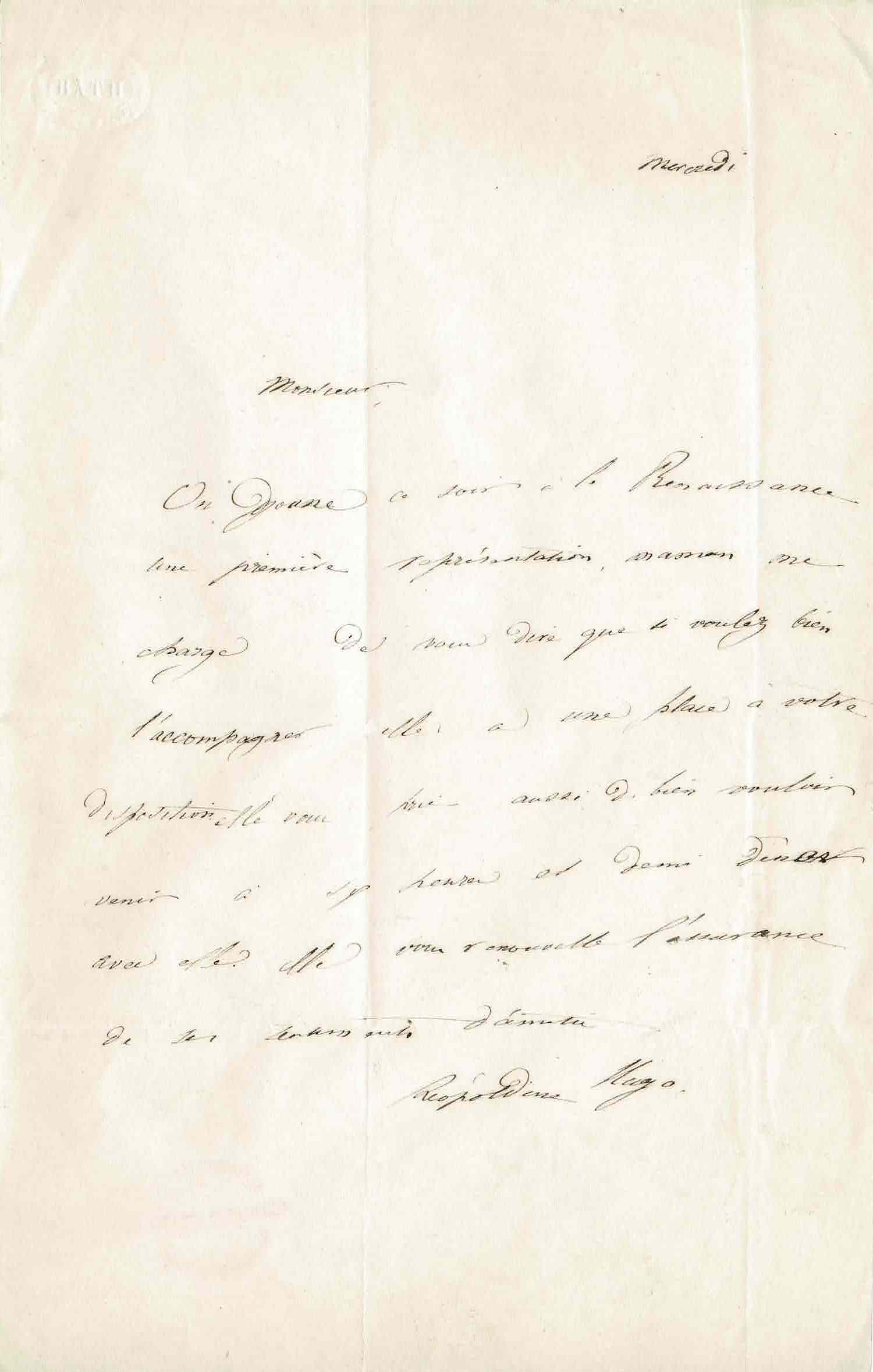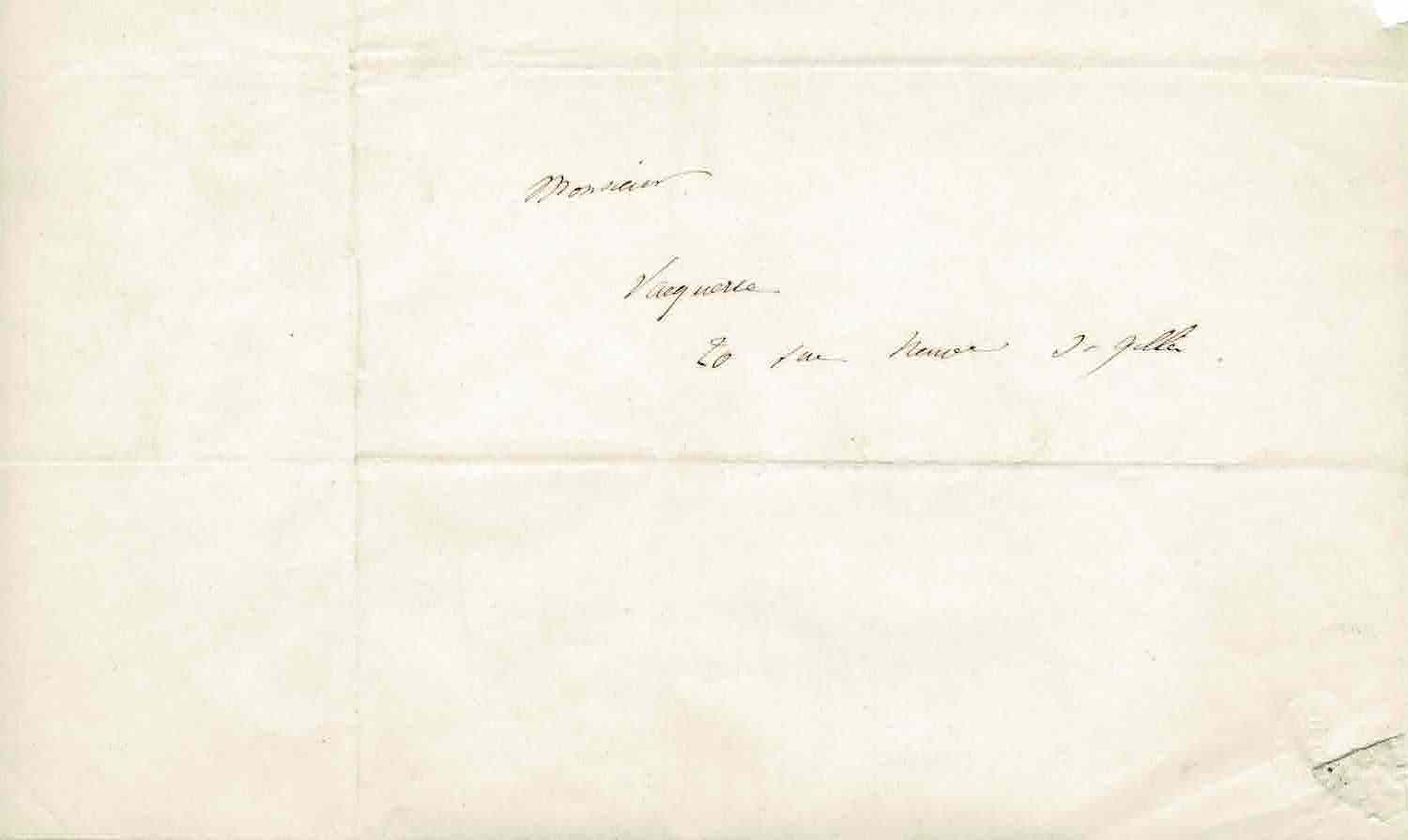Léopoldine HUGO (1824.1843)
Autograph letter signed to Auguste Vacquerie.
One page in-8°. Slight residual trace of collector's stamp.
Slnd. Tuesday [March 7, 1843]. Autograph address.
Rare and moving letter from Léopoldine Hugo – one of the last of her life – inviting her brother-in-law, at the request of her mother Adèle Hugo, to the first theatrical performance of Victor Hugo's historical drama, Les Burgraves.
“Sir, We are giving a first performance this evening at the Renaissance. Mom has asked me to tell you that if you would like to accompany her, she has a place at your disposal. She also asks you to come to dinner at half past six. She renews to you the assurance of her feelings of friendship. Léopoldine Hugo. »
__________________________________________________________
Léopoldine is the eldest daughter of the great man. Nicknamed Didine, she was adored by her father.
Married in February 1843 to Charles Vacquerie, fate struck six months later: on September 4, in Villequier, the couple embarked for a trip on a sailing boat. A gust of wind overturns the boat; Léopoldine, who cannot swim, is swept away, just like Charles. She had just celebrated her 19th birthday.
Hugo, traveling with Juliette Drouet, only learned of the death of his daughter on September 9, in Rochefort. Waiting for the stagecoach from La Rochelle in a café, he looked through the newspaper Le Siècle of September 6, which reported the event: “ They brought me beer and a newspaper, Le Siècle. I read. This is how I learned that half of my life and my heart was dead ”
In her diary, Juliette Drouet poignantly testifies to the event: “On a kind of large square, we see written in large letters: Café de l'Europe. We enter it. The cafe is deserted at this time of day. There is only one young man, at the first table on the right, reading a newspaper and smoking, opposite the lady at the counter, on the left. We will place ourselves at the very back, almost under a small spiral staircase decorated with a red calico banister. The boy brings a bottle of beer and leaves. Under a table, in front of us, there are several newspapers. Toto takes one, at random, and I take the Charivari. I had barely had time to look at the title when my poor beloved suddenly leaned over me and said to me in a strangled voice, showing me the newspaper he was holding in his hand: “this is what is horrible ! » I look up at him: never, as long as I live, will I forget the expression of nameless despair on his noble face. I had just seen him smiling and happy and, in less than a second, without transition, I found him devastated. Her poor lips were white; her beautiful eyes looked without seeing. Her face and hair were wet from crying. His poor hand was clutched to his heart, as if to prevent it from escaping from his chest. I take the awful newspaper and read… ”
Hugo never recovered from this tragic fate and the memory of Léopoldine was in his heart every day: “Tomorrow at dawn, at the hour when the countryside whitens, I will leave. You see, I know you're waiting for me. I will go through the forest, I will go across the mountains. I can't stay away from you any longer... »


